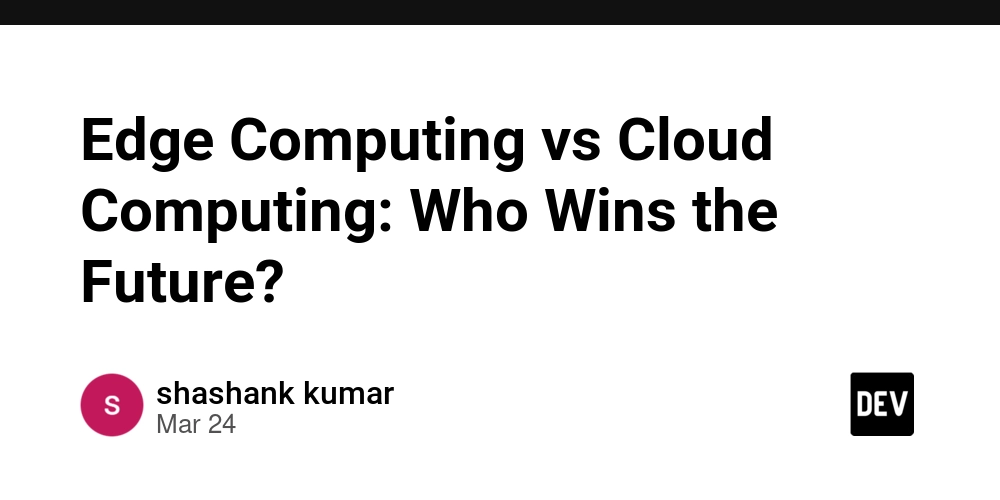Dev
4w
257

Image Credit: Dev
Edge Computing vs Cloud Computing: Who Wins the Future?
- Edge computing and cloud computing are evolving as dominant paradigms in the digital world, impacting organizations and individuals alike.
- Cloud computing refers to services delivered over the Internet, offering flexibility and cost-effectiveness, with Amazon Web Services, Microsoft Azure, and Google Cloud as key players.
- Edge computing distributes processing power to data collection points, reducing latency and improving speed, ideal for real-time applications like autonomous vehicles.
- In the future, hybrid solutions combining cloud and edge computing are expected to dominate the market.
- Cloud computing will continue to be essential, especially for applications requiring massive data processing and centralized infrastructure.
- Edge computing excels in specialized applications needing real-time processing and low latency, such as healthcare and manufacturing.
- Integrating cloud and edge computing will maximize operational efficiency in future systems, catering to real-time processing and data management needs.
- Professionals with expertise in both cloud and edge computing will have promising career opportunities in roles like Cloud Engineer and Solutions Architect.
- Learning about both cloud and edge computing will be crucial for technology professionals to stay ahead in the evolving digital landscape.
- The future holds vast opportunities for professionals adept in cloud and edge computing, offering promising career prospects in various tech domains.
Read Full Article
15 Likes
For uninterrupted reading, download the app